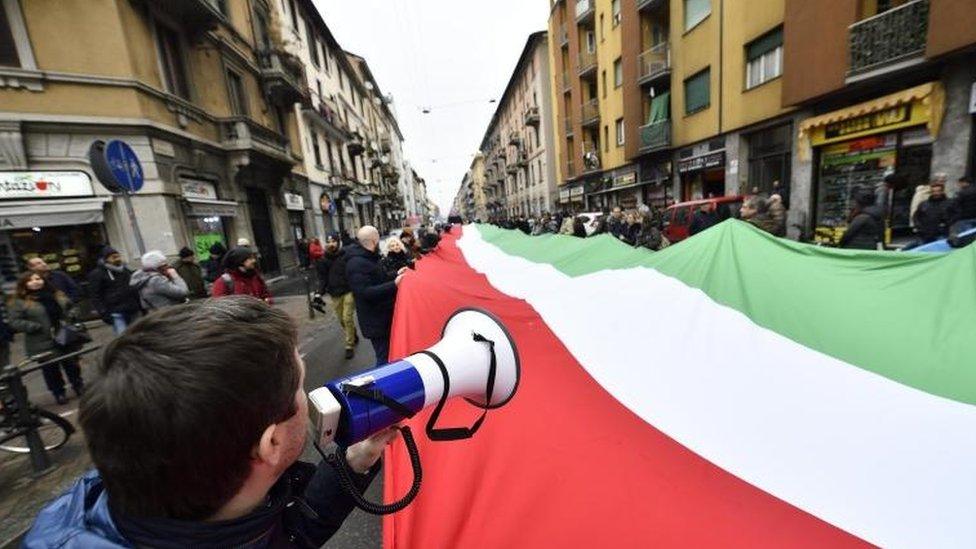Italy government: Leaders talk amid political crisis
- Published
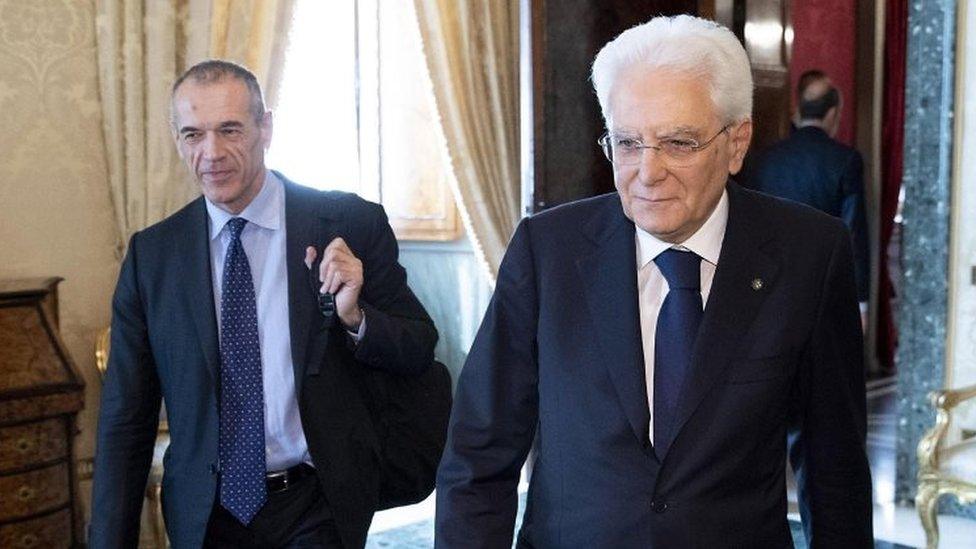
PM-designate Carlo Cottarelli (left) and President Sergio Mattarella talked on Wednesday morning
Fresh talks to overcome political turmoil in Italy - the EU's fourth largest economy - are being held.
Stock markets have been hit because there is still no government three months after elections.
Reports suggest PM-designate Carlo Cottarelli may be stepping back from forming a technocratic government.
But there are also reports a snap election might be called, or that two populist parties could try again to form an administration.
However, they seem to disagree on whether an election or a new government now is the best option.
Why has the crisis deepened?
Italy has been without a government since elections in March because no political group can form a majority.
The two big winners in that election - Five Star and The League - attempted to join forces on Sunday but abandoned efforts after President Sergio Matarella vetoed their choice of finance minister.
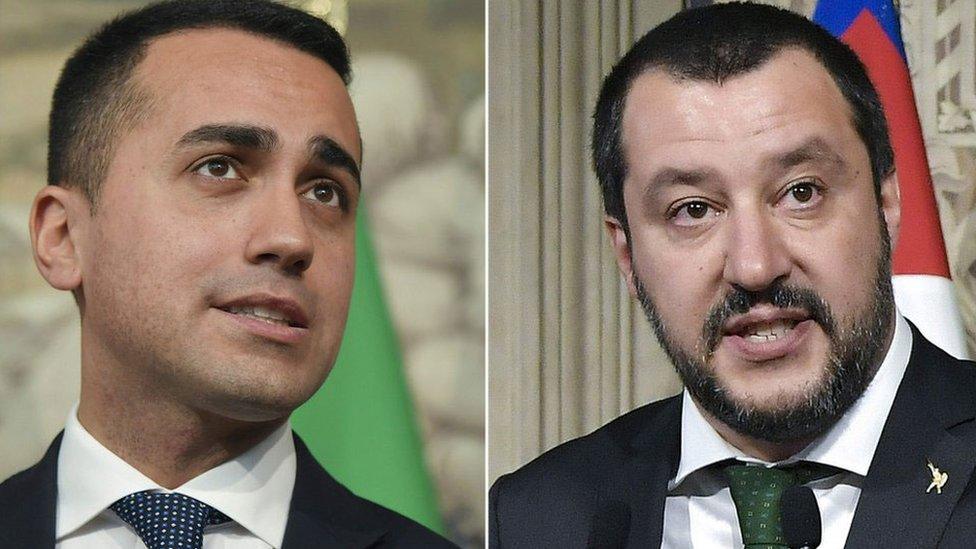
Five Star leader Luigi Di Maio (L) and The League leader Matteo Salvini
Mr Mattarella said he could not appoint the Eurosceptic Paolo Savona to the post, citing concern from investors at home and abroad, and tasked Mr Cottarelli with forming a government instead.
The rare move by the president to veto the choice of finance minister sparked fury from both populist parties, who say they will reject Mr Cottarelli's nomination in parliament.
After the president blocked Mr Savona's appointment, Five Star leader Luigi Di Maio urged parliament to impeach the president.
Impeachment of three previous Italian presidents has been attempted but failed. Impeachment is approved by a simple majority of both houses of parliament, but the final decision rests with the constitutional court.
Mr Di Maio later called for peaceful protests and urged his supporters to unite and "make some noise".
The League's chief Matteo Salvini also criticised the president's decision, calling for mass protests and accusing Brussels and Germany of meddling.
What are the options?
One is that Five Star and The League try again to present an administration acceptable to the president.
A Five Star source told Reuters on Wednesday morning that an attempt was being made to find "a point of compromise on another name" for finance minister.
This scenario would also see the impeachment threat against the president withdrawn.
But fresh elections still seem a possibility, with 29 July being mentioned.
The League's Matteo Salvini, in a sign of differences with Five Star, said on Wednesday morning: "Let's have a vote as soon as possible, but not at the end of July."
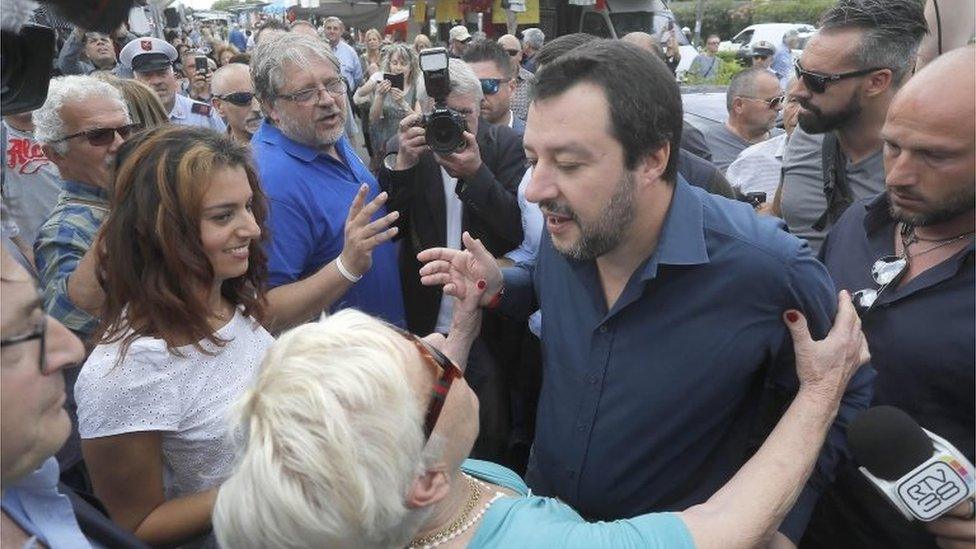
The League's Mr Salvini wants fresh elections
President Mattarella may choose to skip the appointment of a stop-gap government and call elections.
His choice for prime minister, Mr Cottarelli, an ex-IMF economist, appears to have failed to secure support from major political parties and may not even bother to be sworn in.
Latest reports in Italian media quote Mr Cottarelli as favouring "a political government" and saying he is waiting for "further developments".
He appears to have suspended his own efforts to form an interim administration and could instead be giving Five Star and The League a second chance, says BBC Rome Correspondent James Reynolds.
Current opinion polls suggest that the populist parties are in a strong position should an early vote be called.
Italy's relationship with the EU will likely be a central issue in any new election. Other parties also appear keen to see a fresh poll.
"It would be best to go to elections as quickly as possible, as early as July," said Andrea Marcucci, who leads the centre-left Democratic Party in the Italian senate.
Why is the crisis causing concern?
Investors are once again worried about the stability of the eurozone should Eurosceptic parties form the next government.
The League argues that fiscal rules used in the eurozone are "enslaving" Italians. Five Star has denied it wants Italy out of the euro.
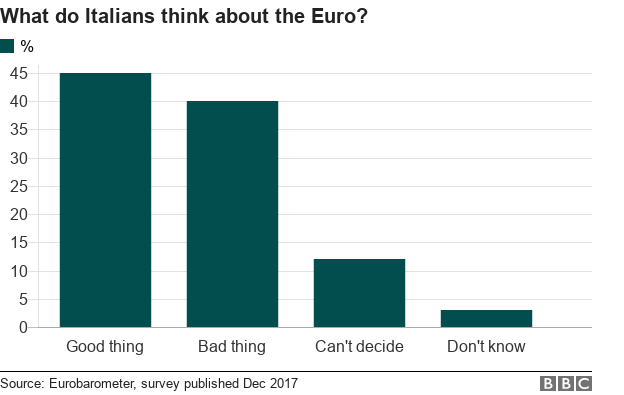
The markets are also worried about government spending rising in a country which already has high debts. As the crisis deepened this week, Italy offered the highest returns in four years for government bonds.
The costs of servicing Italy's debt have risen, but the BBC World Service economics correspondent, Andrew Walker, says we are not yet near the levels of financial stress that were evident in the peak of the eurozone financial crisis in 2011-12.
Italy was one of the six founding members of what later became the European Union, and a Eurosceptic government would be seen by many as a setback for the bloc.
- Published28 May 2018
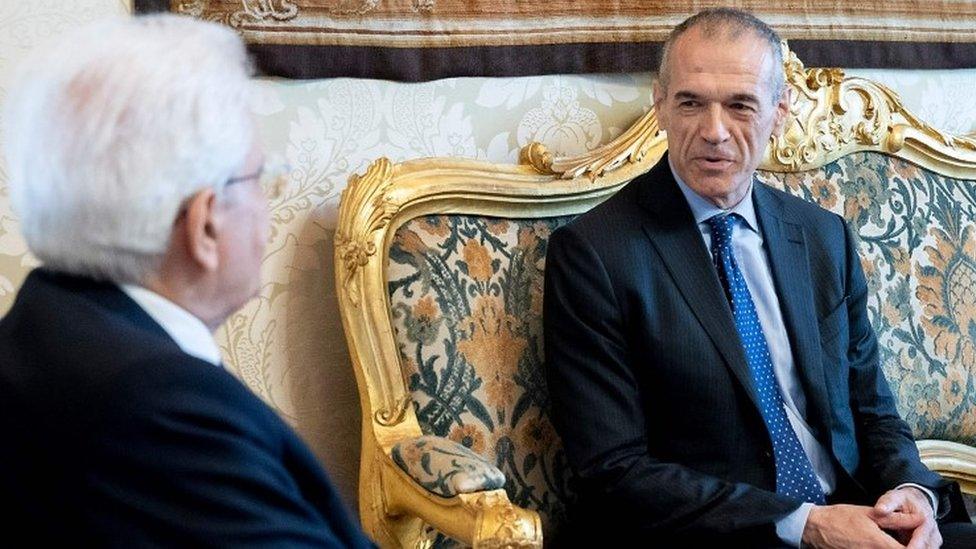
- Published28 May 2018
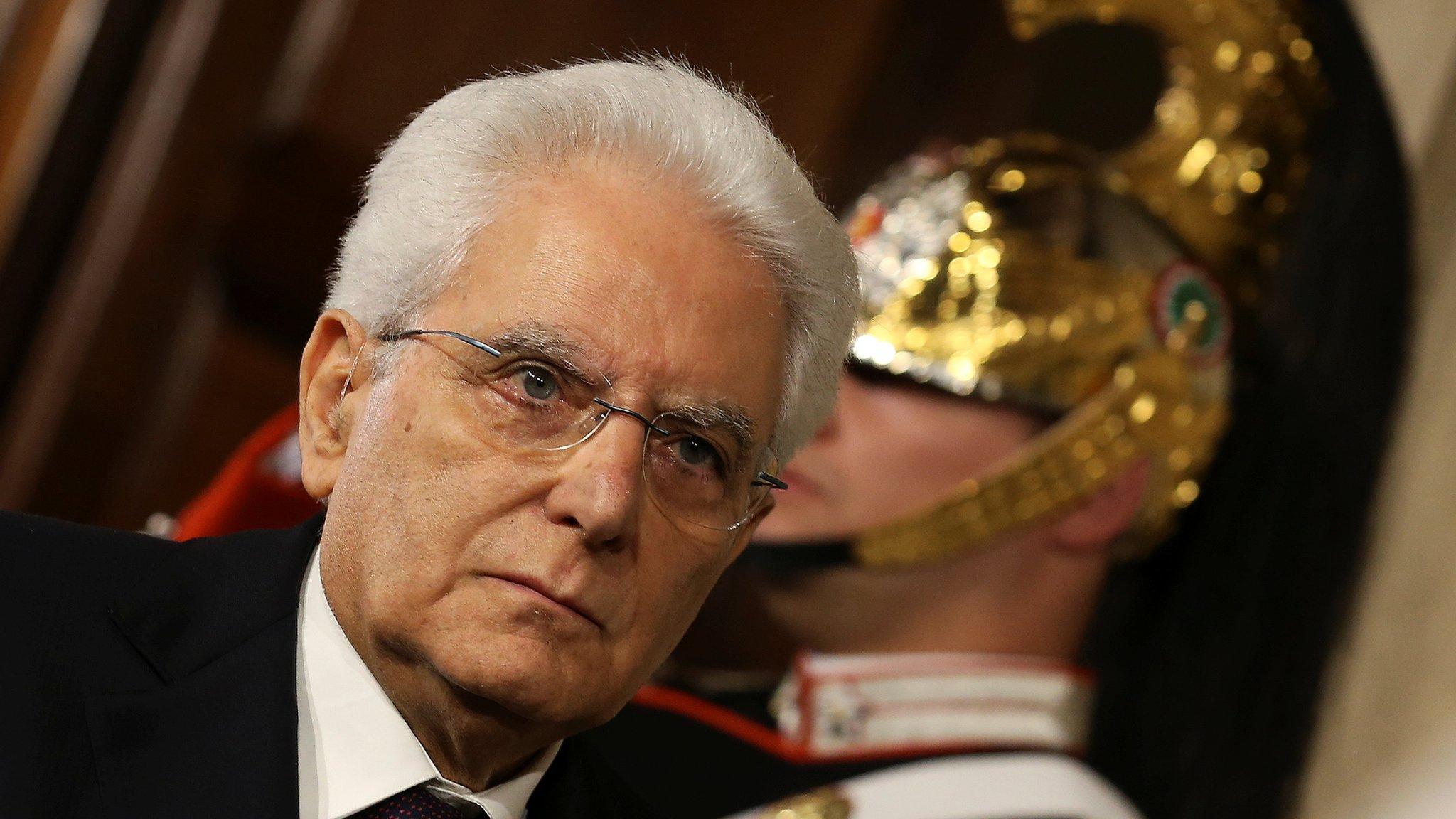
- Published1 June 2018
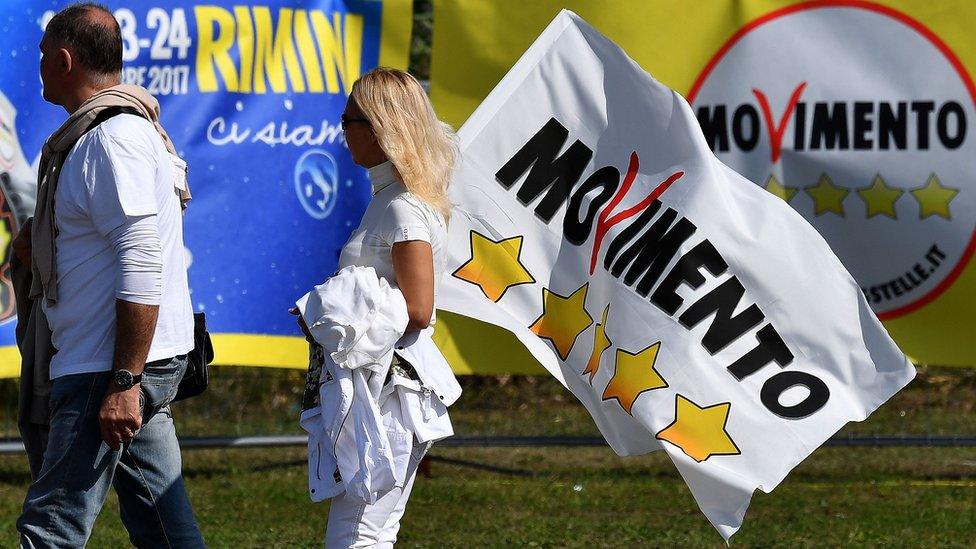
- Published2 March 2018
